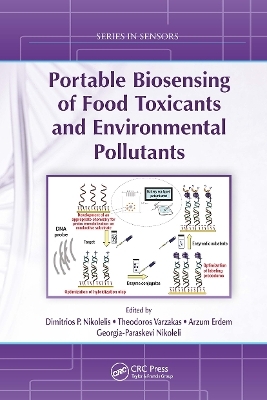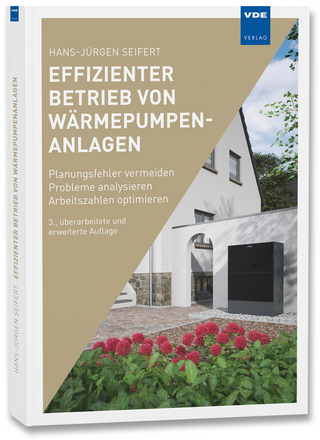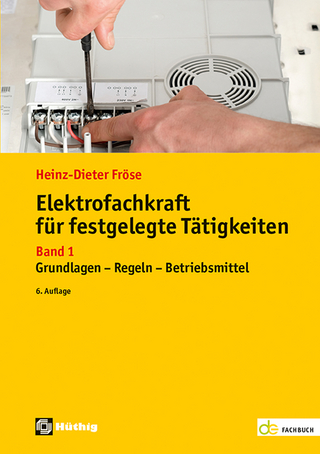
Portable Biosensing of Food Toxicants and Environmental Pollutants
CRC Press (Verlag)
978-1-032-91747-4 (ISBN)
Biosensors are poised to make a large impact in environmental, food, and biomedical applications, as they clearly offer advantages over standard analytical methods, including minimal sample preparation and handling, real-time detection, rapid detection of analytes, and the ability to be used by non-skilled personnel. Covering numerous applications of biosensors used in food and the environment, Portable Biosensing of Food Toxicants and Environmental Pollutants presents basic knowledge on biosensor technology at a postgraduate level and explores the latest advances in chemical sensor technology for researchers.
By providing useful, state-of-the-art information on recent developments in biosensing devices, the book offers both newcomers and experts a roadmap to this technology. In the book, distinguished researchers from around the world show how portable and handheld nanosensors, such as dynamic DNA and protein arrays, enable rapid and accurate detection of environmental pollutants and pathogens.
The book first introduces the basic principles of biosensing for newcomers to the technology. It then explains how the integration of a "receptor" can provide analytically useful information. It also describes trends in biosensing and examines how a small-sized device can have portability for the in situ determination of toxicants. The book concludes with several examples illustrating how to determine toxicants in food and environmental samples.
Dimitrios P. Nikolelis is a professor of environmental chemistry in the Department of Chemistry at the University of Athens, Greece. He is also the editor of the journal Chemical Sensors. Dr. Nikolelis has published over 200 scientific papers in journals and conferences and edited three books on biosensors. His research focuses on the fabrication of portable biosensors for use in the field, including construction of novel chemical nanosensors for the rapid detection of environmental pollutants directly in the gas phase. He received a PhD from the University of Athens. Theodoros Varzakas is an associate professor in the Department of Food Technology at the Technological Educational Institute of Kalamata, Greece, specializing in issues of food technology, food processing, food quality, and safety. A fellow of the Institute of Food Science & Technology, Dr. Varzakas has written more than 80 research papers and reviews, published two books on genetically modified food and quality control in food, and edited a book on sweeteners. He received a PhD in food biotechnology and MBA in food management from Reading University. Arzum Erdem is a professor in the Analytical Chemistry Department in the Faculty of Pharmacy at Ege University, Turkey. Dr. Erdem has received several honors, including recognitions from the Turkish Academy of Sciences and the Scientific and Technological Research Council of Turkey. Her research concerns the development of novel transducers and chemical and biological recognition systems using different nanomaterials as well as the development of integrated analytical systems for environmental, industrial, and biomedical monitoring. She received a PhD in analytical chemistry from Ege University. Georgia-Paraskevi Nikoleli is pursuing her PhD in the Laboratory of Inorganic and Analytical Chemistry in the School of Chemical Engineering at the National Technical University of Athens, Greece. She has authored a large number of scientific papers on the detection of environmental pollutants, such as insecticides, toxins, and dioxins. Her research interests include the construction of novel chemical nanosensors that can be used for the rapid detection of environmental pollutants directly in the gas phase and for real-time monitoring of environmental pollutants in waters. She received a BSc from the University of Athens.
Photonic Crystal Waveguide Sensing. Electrochemical Biosensor. Piezoelectric Sensors. Surface-Enhanced Raman Scattering–Based Biosensors. Enzymatic Biosensors. Antibody-Based Biosensors. Ion Channel Switch- and Lipid Film-Based Biosensors. Oligonucleotide and Nucleic Acid–Based Biosensors. DNA Synthesis and Its Biosensor Detection. Aptasensors: The New Trends. Tissue, Microorganisms, Organelles, and Cell-Based Biosensors. Nanotechnology and Nanofabrication Applications in Chemical Sensing. Bioelectronic Tongues. Molecularly Imprinted Polymer-Based Biosensors. Lab-on-a-Chip and Microfluidic Technology. Biosensors in Quality Assurance of Dairy Products. Water-Soluble Vitamin and Drug Residue Determination. Optical Biosensors in Food Safety and Control. Biosensors in Express Control of Quality Assurance of Products. Efficiencies of Biosensors in Environmental Monitoring. Application of Biosensors on Air Pollution Monitoring. Oligonucleotide and DNA Microarrays as Versatile Tools for. Biosensors for Pesticides and Foodborne Pathogens. Micro- and Nanopatterning for Bacteria- and Virus-Based Electrochemical DNA Biosensors in Food Safety: Determination of Phenolic Compounds and Antioxidant Capacity in Foods and Beverages. Biosensors in Quality of Meat Products. Microbial Cells and Enzymes for Assaying the Fermentation Processes of Alcohol Production: Starch, Glucose, Ethanol, BOD. Biosensors in the Control of Biochemical Quantities in the Diagnostics of Diseases.
| Erscheinungsdatum | 16.10.2024 |
|---|---|
| Reihe/Serie | Series in Sensors |
| Zusatzinfo | 232 Illustrations, black and white |
| Verlagsort | London |
| Sprache | englisch |
| Maße | 156 x 234 mm |
| Gewicht | 1533 g |
| Themenwelt | Technik ► Elektrotechnik / Energietechnik |
| Technik ► Maschinenbau | |
| Technik ► Umwelttechnik / Biotechnologie | |
| ISBN-10 | 1-032-91747-4 / 1032917474 |
| ISBN-13 | 978-1-032-91747-4 / 9781032917474 |
| Zustand | Neuware |
| Informationen gemäß Produktsicherheitsverordnung (GPSR) | |
| Haben Sie eine Frage zum Produkt? |
aus dem Bereich


